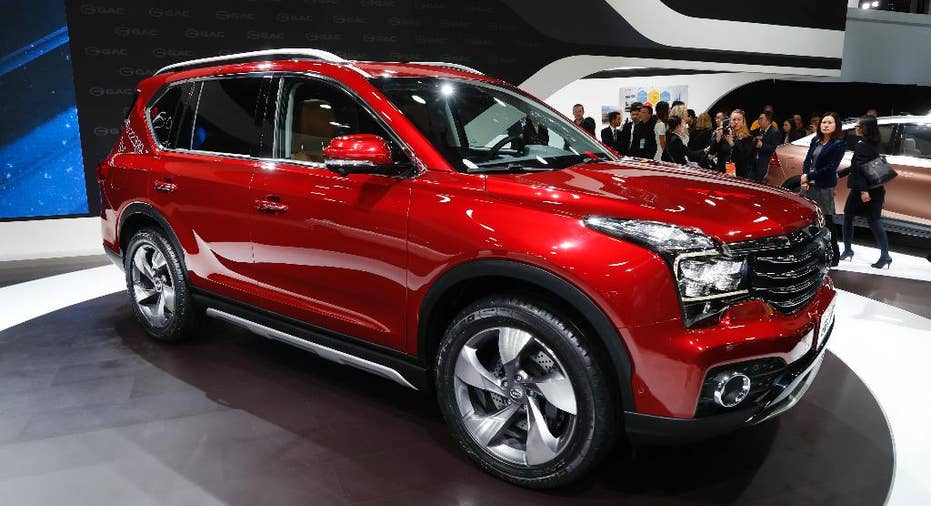China's GAC could sell SUV in US for small-car price by 2019

DETROIT – Chinese automaker Guangzhou Automobile Group aims to sell a well-equipped five-passenger SUV in the U.S. for about the price of a compact car by the end of this decade.
Automakers from China have talked in the past about selling cars in the U.S. only to run into reality — such as a lack of dealerships to sell them or subpar quality by U.S. standards. But a top Guangzhou official said Monday that the company is already laying the groundwork to begin sales here no later than in 2019.
Guangzhou, known as GAC, unveiled three new vehicles Monday at the annual auto show in Detroit: a plug-in hybrid concept car called EnSpirit, the five-seat gas-powered GS7 SUV, and the electric GE3 SUV. The company also displayed a sedan.
GAC wants to start sales in the U.S. no later than in 2019, and is working on setting up a dealer network, building a U.S. research center this year, and complying with stricter U.S. safety regulations, Director and General Manager Yu Jun said through an interpreter.
The GX7 SUV, with a leather interior, touch screen and automatic transmission, would cost from $15,000 to $18,000 in the U.S. at present, Yu said, about the same as a base model Chevrolet Cruze compact car. By comparison, the five-seat Toyota RAV4 small SUV starts around $25,000.
GAC now sells about 380,000 vehicles per year in China, a relatively small number in the world's largest auto market of about 22 million annual sales. It sells few cars outside of China. By comparison, General Motors and its Chinese affiliates sold 2.7 million vehicles in China in the first nine months of 2016.
Yu said GAC expects to expand from seven models currently on sale to over 20 by 2020, including eight electric or gas-electric hybrid models. Some would be designed just for the U.S. market, he added.
Although the company said at a news conference that it could be selling SUVs in the U.S. as early as next year, Yu said 2019 was more a realistic target. "We absolutely need to ensure that our products meet all the requirements of the U.S. market," he said.
Other foreign automakers have announced plans to sell in the U.S., only to be stymied by the lack of a dealership network, a reputation for low quality and an inability to meet U.S. safety and emissions standards. But Yu said GAC has plans to handle all the obstacles.
The state-owned company could create its own subsidiary to set up a dealer network, join with existing dealer networks, work a deal with Chinese partner Fiat Chrysler, or join with an independent investor, Yu said. The U.S. research center would be set up to meet U.S. safety and emissions standards, he said.
Yu said GAC already is winning awards for quality in China and is building a good reputation there.
The company may also have to deal with border taxes threatened by the administration of President-elect Donald Trump, but Yu called that a short-term problem. Eventually the company plans to build vehicles in the U.S., he said.
Korean automakers Hyundai and Kia started in the U.S. with low-quality entry-level models that were priced lower than competitors. As quality got better, prices rose and they became bigger players. But Yu said GAC won't sell an entry-level model in the U.S.
"We will stick with our high positioning even within the U.S. market because that positioning brought us success in the Chinese market," he said.
GAC sells passenger cars in China under Trumpchi and Gonow brands, SUVs under Changfeng and buses under GAC. It also has the Everys and Hino brands. The company also is the Chinese assembler for Fiat as well as Japanese brands, Honda, Isuzu, Mitsubishi, and Toyota.
GAC is in the middle of the pack in sales among Chinese domestic automakers.
____
Joe McDonald in Beijing contributed to this report.



















